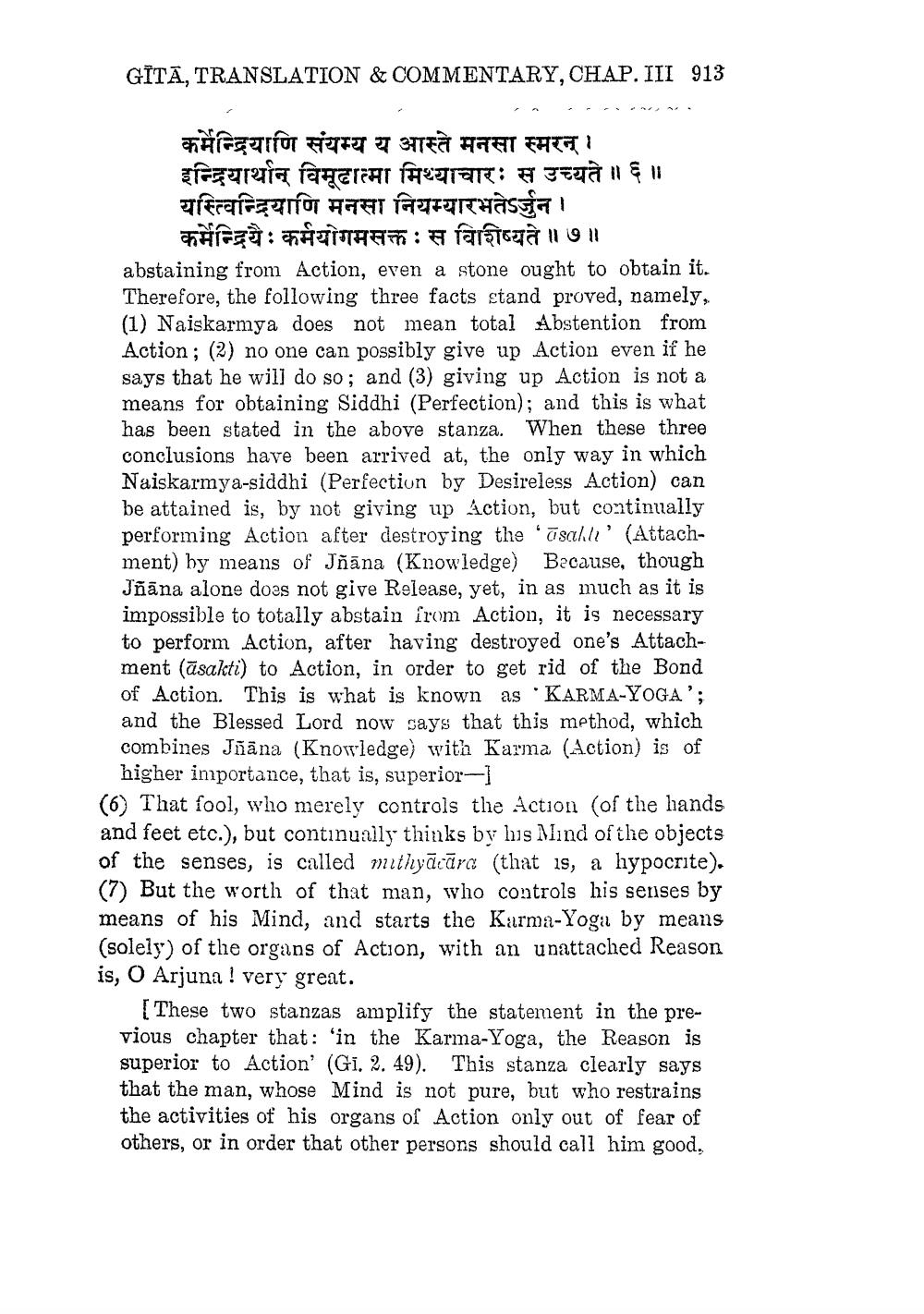________________
GITĀ, TRANSLATION & COMMENTARY, CHAP. III 913
कर्मेन्द्रियाणि संयम्य य आस्ते मनसा स्मरन् । इन्द्रियार्थान् विमूढात्मा मिथ्याचारः स उच्यते ॥६॥ यस्त्विन्द्रियाणि मनसा नियम्यारभतेऽर्जुन ।
कर्मेन्द्रियैः कर्मयोगमसक्तः स विशिष्यते ॥७॥ abstaining from Action, even a stone ought to obtain it. Therefore, the following three facts stand proved, namely, (1) Naiskarmya does not mean total Abstention from Action; (2) no one can possibly give up Action even if he says that he will do so; and (3) giving up Action is not a means for obtaining Siddhi (Perfection); and this is what has been stated in the above stanza. When these three conclusions have been arrived at, the only way in which Naiskarmya-siddhi (Perfection by Desireless Action) can be attained is, by not giving up Action, but continually performing Action after destroying the 'ūsahlı' (Attachment) hy means of Jñāna (Knowledge) Because, though Jñāna alone does not give Release, yet, in as much as it is impossible to totally abstain from Action, it is necessary to perform Action, after having destroyed one's Attachment (āsakti) to Action, in order to get rid of the Bond of Action. This is what is known as "KARMA-YOGA'; and the Blessed Lord now says that this method, which combines Jñāna (Knowledge) with Karma (Action) is of
higher importance, that is, superior(6) That fool, who merely controls the Action (of the hands and feet etc.), but continually thinks by his Mind of the objects of the senses, is called mithyācāra (that is, a hypocrite). (7) But the worth of that man, who controls his senses by means of his Mind, and starts the Karma-Yoga by means (solely) of the organs of Action, with an unattached Reason is, 0 Arjuna ! very great.
[These two stanzas amplify the statement in the previous chapter that: 'in the Karma-Yoga, the Reason is superior to Action' (Gi. 2. 49). This stanza clearly says that the man, whose Mind is not pure, but who restrains the activities of his organs of Action only out of fear of others, or in order that other persons should call him good.




